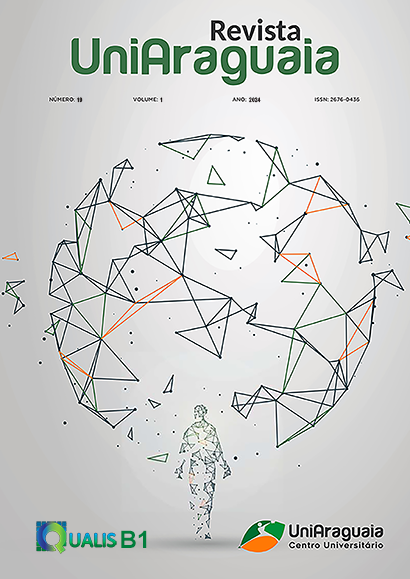EVIDENCIA DE UM MODELO TEÓRICO SOBRE OS HÁBITOS DE RECICLAGEM A PARTIR DA DISPONIBILIDADE DE INFORMAÇÕES, SATISFAÇÃO COM O SERVIÇO PRESTADO E CONSCIÊNCIA DAS CONSEQUÊNCIAS INDIVIDUAIS EM FAMÍLIAS BRASILEIRAS RESIDENTES EM PORTUGAL
Keywords:
Reciclagem. Hábitos de reciclagem. Atitude. Satisfação como o serviço prestado.Abstract
Em termos gerais, os programas de seleção, coleta, e reaproveitamento dos materiais recicláveis (plástico, metal e vidro) com êxito tem sua prioridade na conduta do cidadão, especificamente, no comportamento habitual de separação e descarte dos resíduos domésticos. Assim, teoricamente, há evidência de que os hábitos de reciclagem são mantidos a partir do desenvolvimento da consciência das consequências individuais ambientais, satisfação com o serviço prestado e disponibilidade de informações. O presente artigo tem por objetivo verificar a relação entre esses construtos e verificar o nível de associação entre os mesmos. Participaram do estudo 352 pessoas, todas brasileiras, residentes em Portugal, respondendo o índice de Autorrelato do Hábito, escala de consciência das consequências individuais ambientais, satisfação com o serviço prestado e disponibilidade de informações sobre a reciclagem, todas tendo sua resposta indicada numa escala do tipo Likert de cinco ponto. Nas análises estatísticas, observaram-se que todas as escalas revelaram indicadores psicométricos confiáveis quanto a sua organização fatorial. No que se refere ao modelo teórico propostos, a razão estatística esteve no intervalo exigido, confirmando a hipótese de um modelo hierárquico, o qual, sugere que a disponibilidade da informação se associou à consciência das consequências individuais ambientais, esta, por sua vez, satisfação com o serviço prestado, a qual, explicou os hábitos de reciclagem. Na análise de variância, os escores médios maiores ocorreu no efeito de interação na alta disponibilidade, alta consciência individual e alta satisfação com o serviço prestado em fundo dos hábitos de reciclagem, condição que corroborou o modelo teórico proposto.Downloads
Published
Issue
Section
License
Copyright (c) 2024 REVISTA UNIARAGUAIA

This work is licensed under a Creative Commons Attribution 4.0 International License.
The copyright of the published articles will be transferred to the Uniaaraguaia Magazine, allowing its subsequent reproduction as transcription and with due citation of source. In the event of acceptance and before the publication of the article, the plaintiff (s) shall write a statement formally transferring copyright to the magazine.
The author may also print and distribute copies of his article, provided that he mentions that the rights belong to the Uniaaraguaia Magazine.
Author rights include the right to reproduce in full or partly by any means, distribute this article, including figures and photographs.
By submitting originals to the Uniaaraguaia magazine, the author or authors express agreement with the following terms:
a) Authors maintain copyright and grant Uniaraguaia magazine the right of first publication, with the work simultaneously licensed under the Creative Commons Attribution license that allows the sharing of work with recognition of the authorship and initial publication in this magazine.
b) Authors are authorized to assume additional contracts separately, for non-expiration distribution of the work version published in this magazine (eg publish in institutional repository or as book chapter), with recognition of authorship and initial publication in this journal.
c) Authors are allowed and are encouraged to publish and distribute their work online (eg in institutional repositories or on their personal page) to any point before or during the editorial process, as this can generate productive changes as well as increase the impact and citation of published work.

